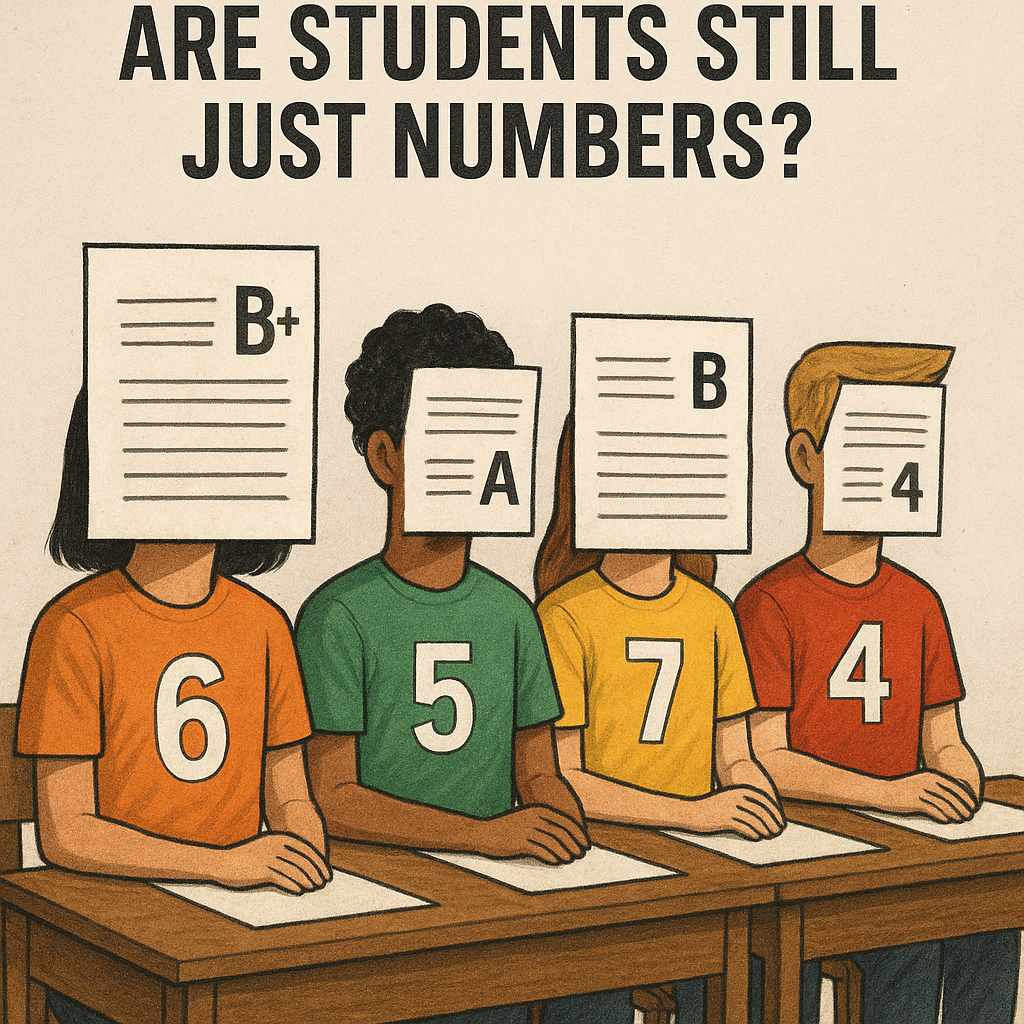Preparing students for the world of today – not yesterday
Education should prepare students for a future that doesn’t yet exist. That future demands agility, emotional intelligence, collaboration, and creativity. According to the World Economic Forum, the top skills needed for 21st-century success include problem-solving, critical thinking, self-management, and resilience [7]. Yet these skills don’t appear on standardised tests – or in school league tables. Many UK schools remain locked into a Victorian model: test, rank, repeat – while forward-thinking schools have already replaced the rigid test-driven culture with a “learn to learn” mindset.
Knowing how to learn is key
This article explores what our obsession with numbers means for learning, well-being, and the future of education. Is there still room to truly “learn how to learn”? Let’s also look at solutions – such as enduri – which puts learning strategies at the centre. Whether it’s navigating AI or developing creative responses to complex problems, knowing how to learn is key. Only when learners understand their own strengths and needs, they can adapt, explore, and implement solutions effectively. That makes all the difference – not only in a student’s personal growth, but in society’s ability to face the future.

Is there still room to truly “learn how to learn”?
Test results: The currency of reputation for schools
When Test Scores Rule the Classroom
Growing up in the Swiss countryside, I was immersed in a culture where standing out was reserved for mountains – not individuals or institutions. The societal fabric was woven with egalitarian threads, and public schools were places of learning, not battlegrounds for outperforming the school next door.
Then I moved to the UK.
As an EdTech founder exploring the British education system, I found myself catapulted into a culture obsessed with measurement. Not of rainfall or hiking elevation – but of test scores. Do not understand me wrong. Most education systems are based on marks and test systems. However, in the UK before the test is after the test.
The educational journey is punctuated by a series of high-stakes exams: GCSEs, A-levels, SATs. These acronyms – sounding a bit like LSD (which was, by the way, invented in Switzerland) – could double as a line-up of designer drugs, but sadly, they’re all about academic performance. These assessments aren’t just milestones for students; they’re the currency of reputation for schools. The Department for Education publishes school league tables annually, ranking institutions based on student test performance at key stages of schooling [1].
Constant Testing: Is There Time Left to Learn How to Learn ?
The test treadmill starts early and rarely stops
Students in the UK face repeated, high-stakes testing throughout their school careers. GCSEs at 16, A-levels at 18, plus baseline assessments, SATs in primary, mock exams, and internal tests in between. The pressure starts early—and rarely lets up.
The problem? Learning isn’t linear. It doesn’t happen in neat blocks or respond predictably to deadlines. But the logic of league tables pushes schools to prioritise subjects and students that will “deliver results.” Time for trial-and-error learning, open-ended exploration, or just slow thinking is increasingly rare. Creative subjects often get squeezed out to make space for exam preparation [2].
League tables don’t tell you whether a student has learned how to collaborate, problem-solve, or persevere. They tell you how well that student bubbled answers under pressure on a single day [1]. And since these tables influence funding, enrolment, and leadership accountability, they matter – a lot.
Test Pressure: A Strain on Mental Health
When achievement comes at a mental cost
Exams come with stress. That’s no surprise. But the extent of the crisis in UK schools is alarming. In 2024, a national survey by the Association of School and College Leaders (ASCL) found that 77% of headteachers reported serious mental health issues among Year 11 students due to exam anxiety. 65% said students were skipping school to avoid that pressure [3].
The pressure isn’t limited to students. Over 80% of teachers report that their own stress is driven by accountability systems tied to test results [4]. It’s no longer about supporting growth—it’s about meeting quotas. The pressure to hit “target grades” has turned many classrooms into revision factories. When a year’s worth of learning is judged by a three-hour test, it’s no wonder students feel they’re being assessed more for their stress tolerance than their potential. (Imagine if airline pilots or heart surgeons were judged by a pop quiz under fluorescent lights. On second thought – don’t.)
Ratings and Rankings: Good for Whom?
When metrics mask meaning
On the surface, school league tables look like tools for transparency. But dig deeper and the picture blurs. These rankings are based on raw test scores, with minimal context – like levels of disadvantage, school resources, or how far students have progressed from their starting point [1]. A school achieving extraordinary results with underprivileged students can still rank “poorly” on paper Some schools are opting out. Benenden School, a leading independent girls’ school, has withdrawn from league table participation. Its leadership argues that such rankings fail to capture the depth, breadth, and values of a high-quality education [6].
More schools are following. And as top-tier independents increasingly opt out, the credibility of league tables as a universal benchmark starts to erode.
enduri’s Position: Soft Skills for Hard Times
Why we care more about how students learn than how they score
At enduri, we’re not anti-assessment. We’re pro-learning. That’s not a euphemism – it’s a shift in focus. Instead of asking, “What mark did the student get?”, we ask, “How did the student learn?”
We support schools that value process over performance alone. Our platform helps students reflect on how they study, manage their time, and adapt when things go wrong. These metacognitive skills – learning to learn – are the bedrock of real educational equity.
We’re also realistic. We know that schools face inspections, targets, and performance data. But as one school leader from West London, talking to me, put it: “No matter what system we work in, inspections and testing are part of the job. As long as we don’t sacrifice student needs for good scores, I don’t see the problem.” [5]
This is exactly where enduri positions itself—not as an opponent of results, but as an advocate for balance. Our work isn’t for schools that see memorisation and repetition as the only path. It’s for those who value a more sustainable, holistic, and human form of achievement.
Conclusion: Time to Evolve
Marks matter, but meaning matters more
Education systems will always value marks to some extent. But relying on them as the sole measure of success is short-sighted – for schools, for students, and for society. If we want to raise learners who can think, collaborate, and navigate uncertainty, we must offer them more than rigid pathways and stressful finals. We must give them tools to learn to learn, and to understand themselves and the world.
Sources
- Department for Education – School Performance Tables:
https://www.gov.uk/school-performance-tables - Ofsted – Education Inspection Framework Overview:
https://www.gov.uk/government/publications/education-inspection-framework-overview - ASCL – Survey on Exam Anxiety (2024):
https://www.ascl.org.uk/News/Our-news-and-press-releases/ASCL-survey-reveals-alarming-levels-of-exam-anxiet - Education Support – Teacher Wellbeing Index 2023:
https://www.educationsupport.org.uk/resources/research-reports/teacher-wellbeing-index-2023/ - Wüthrich, C. (2024). Englands Schulen im Rating-Stress:
https://wuethrich.eu/de/2024/01/10/englands-schulen-im-ratingstress/ - Benenden School – Academic Philosophy:
https://www.benenden.school/academic/futures/ - World Economic Forum – 21st Century Skills for Future Jobs:
https://www.weforum.org/agenda/2020/01/21st-century-skills-future-jobs-students/

